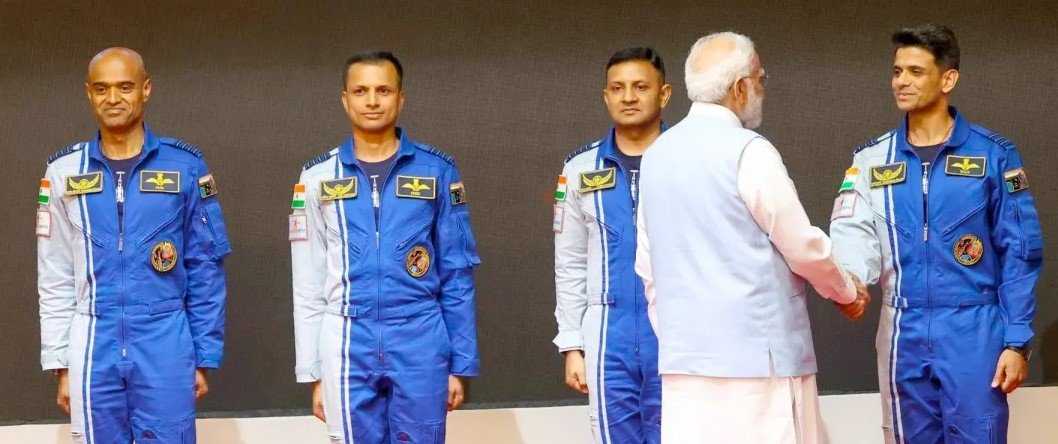Indian Astronauts to Start Training for ISS Mission
In a monumental step for India’s space endeavors, the nation’s astronauts are set to begin rigorous training for a mission to the International Space Station (ISS). This historic development not only marks India’s growing prominence in space exploration but also paves the way for future collaborations on an international scale.
**Historical Context and Significance**
India’s space program, under the aegis of the Indian Space Research Organisation (ISRO), has made significant strides over the decades. From launching the Mars Orbiter Mission (Mangalyaan) to the recent Chandrayaan missions aimed at exploring the moon, ISRO has demonstrated its capabilities and ambitions. The decision to send Indian astronauts, or “vyomanauts” as they are sometimes called, to the ISS signifies a new era in India’s space journey.
The ISS, a collaborative project involving NASA, Roscosmos, JAXA, ESA, and CSA, has been a hub of scientific research and international cooperation since its inception. India’s participation will not only contribute to this global partnership but also enhance its own scientific and technological expertise.
**The Training Program**
The selected astronauts, who have already undergone basic training in India, will now embark on a comprehensive training regimen that spans several phases. This program is designed to prepare them for the myriad challenges of space travel and life on the ISS.
1. **Basic Spaceflight Training**: This initial phase covers fundamental aspects such as space science, engineering, and technology. The astronauts will study the systems of the spacecraft and the ISS, learn to handle emergency situations, and get acquainted with the basics of spacewalks (Extravehicular Activities or EVAs).
2. **Advanced Training**: In this phase, the astronauts will undergo simulations of various scenarios they might encounter in space. This includes operating the spacecraft, docking with the ISS, and conducting scientific experiments. The training will also emphasize physical fitness, as maintaining health in the microgravity environment of space is crucial.
3. **International Collaboration**: Given the ISS is a joint venture, part of the training will involve familiarizing the astronauts with international protocols and working in a multicultural environment. They will train alongside astronauts from other countries, fostering teamwork and understanding.
4. **Medical and Psychological Preparation**: Space missions pose unique challenges to human physiology and psychology. The astronauts will undergo rigorous medical examinations and training to handle the physical stresses of space travel. Psychological training will help them cope with isolation, confinement, and the stresses of long-duration missions.
**Technological and Scientific Objectives**
India’s mission to the ISS is not just about the prestige of human spaceflight. It has several scientific and technological objectives:
– **Scientific Research**: The ISS serves as a unique laboratory for conducting experiments in microgravity. Indian astronauts will engage in research spanning various fields, including biology, physics, and material sciences. These experiments can yield insights not possible on Earth, potentially leading to groundbreaking discoveries.
– **Technological Development**: Participation in the ISS mission will spur technological advancements in areas like spacecraft design, life support systems, and space medicine. The experience gained will be invaluable for future Indian missions, including the planned Gaganyaan project aimed at achieving human spaceflight capability.
– **International Cooperation**: Collaborating on the ISS mission will strengthen India’s ties with other spacefaring nations. This cooperation can lead to shared resources, knowledge, and technology, benefitting the global space community.
**Challenges and the Road Ahead**
While the prospect of Indian astronauts on the ISS is exciting, it comes with its share of challenges. Training for space missions is physically and mentally demanding, requiring a high degree of dedication and resilience. The technical complexities of space travel also pose significant hurdles.
Furthermore, funding and resources are critical. The Indian government has shown strong support for the space program, but sustained investment will be necessary to ensure the success of this mission and future endeavors.
In conclusion, the initiation of training for Indian astronauts destined for the ISS marks a pivotal moment in India’s space history. It reflects the nation’s growing capabilities and ambitions in space exploration. As these astronauts prepare to venture into the final frontier, they carry with them the hopes and aspirations of a billion people, symbolizing a bright future for Indian space endeavors on the global stage.
